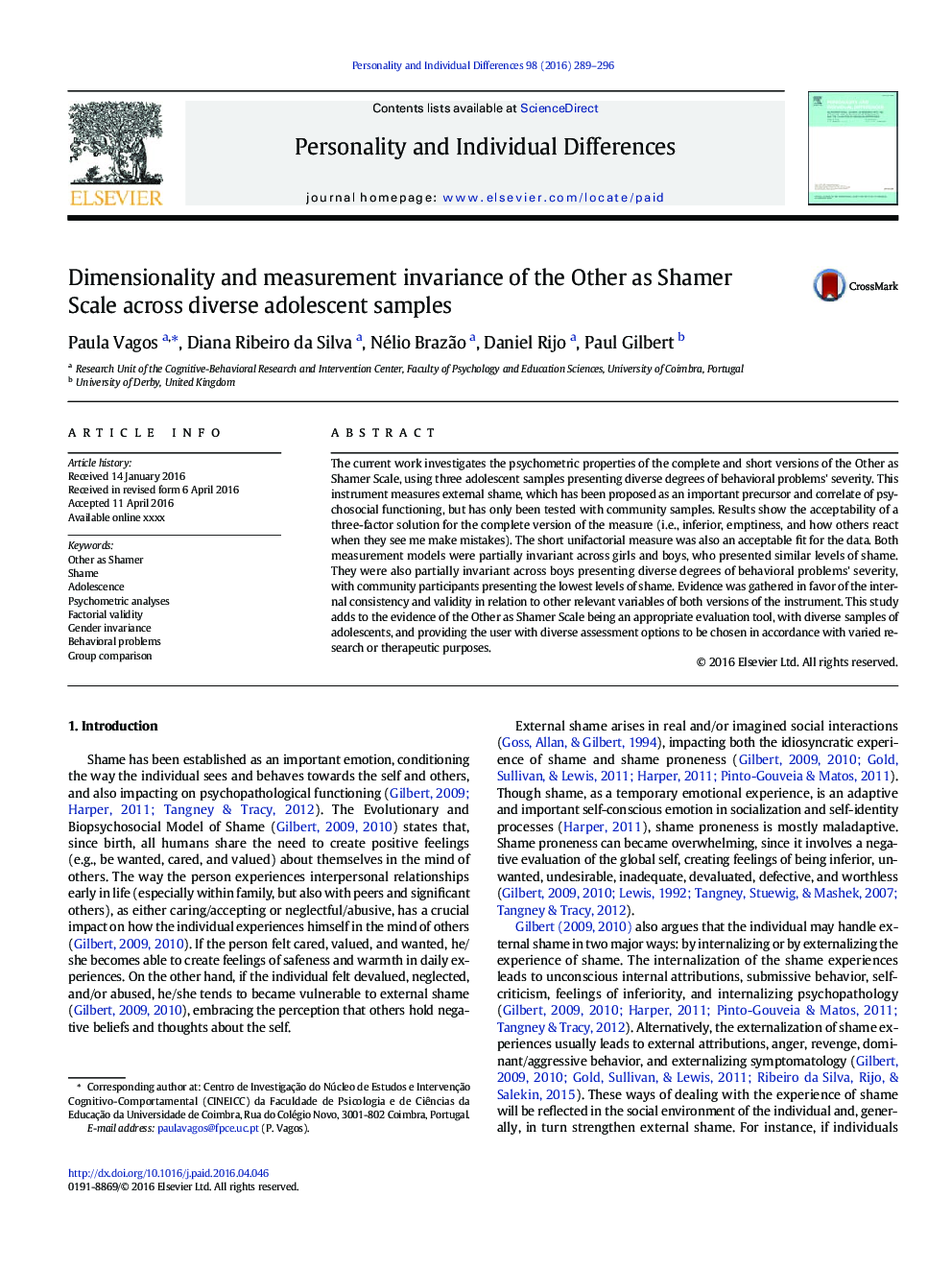| Article ID | Journal | Published Year | Pages | File Type |
|---|---|---|---|---|
| 7250092 | Personality and Individual Differences | 2016 | 8 Pages |
Abstract
The current work investigates the psychometric properties of the complete and short versions of the Other as Shamer Scale, using three adolescent samples presenting diverse degrees of behavioral problems' severity. This instrument measures external shame, which has been proposed as an important precursor and correlate of psychosocial functioning, but has only been tested with community samples. Results show the acceptability of a three-factor solution for the complete version of the measure (i.e., inferior, emptiness, and how others react when they see me make mistakes). The short unifactorial measure was also an acceptable fit for the data. Both measurement models were partially invariant across girls and boys, who presented similar levels of shame. They were also partially invariant across boys presenting diverse degrees of behavioral problems' severity, with community participants presenting the lowest levels of shame. Evidence was gathered in favor of the internal consistency and validity in relation to other relevant variables of both versions of the instrument. This study adds to the evidence of the Other as Shamer Scale being an appropriate evaluation tool, with diverse samples of adolescents, and providing the user with diverse assessment options to be chosen in accordance with varied research or therapeutic purposes.
Keywords
Related Topics
Life Sciences
Neuroscience
Behavioral Neuroscience
Authors
Paula Vagos, Diana Ribeiro da Silva, Nélio Brazão, Daniel Rijo, Paul Gilbert,
